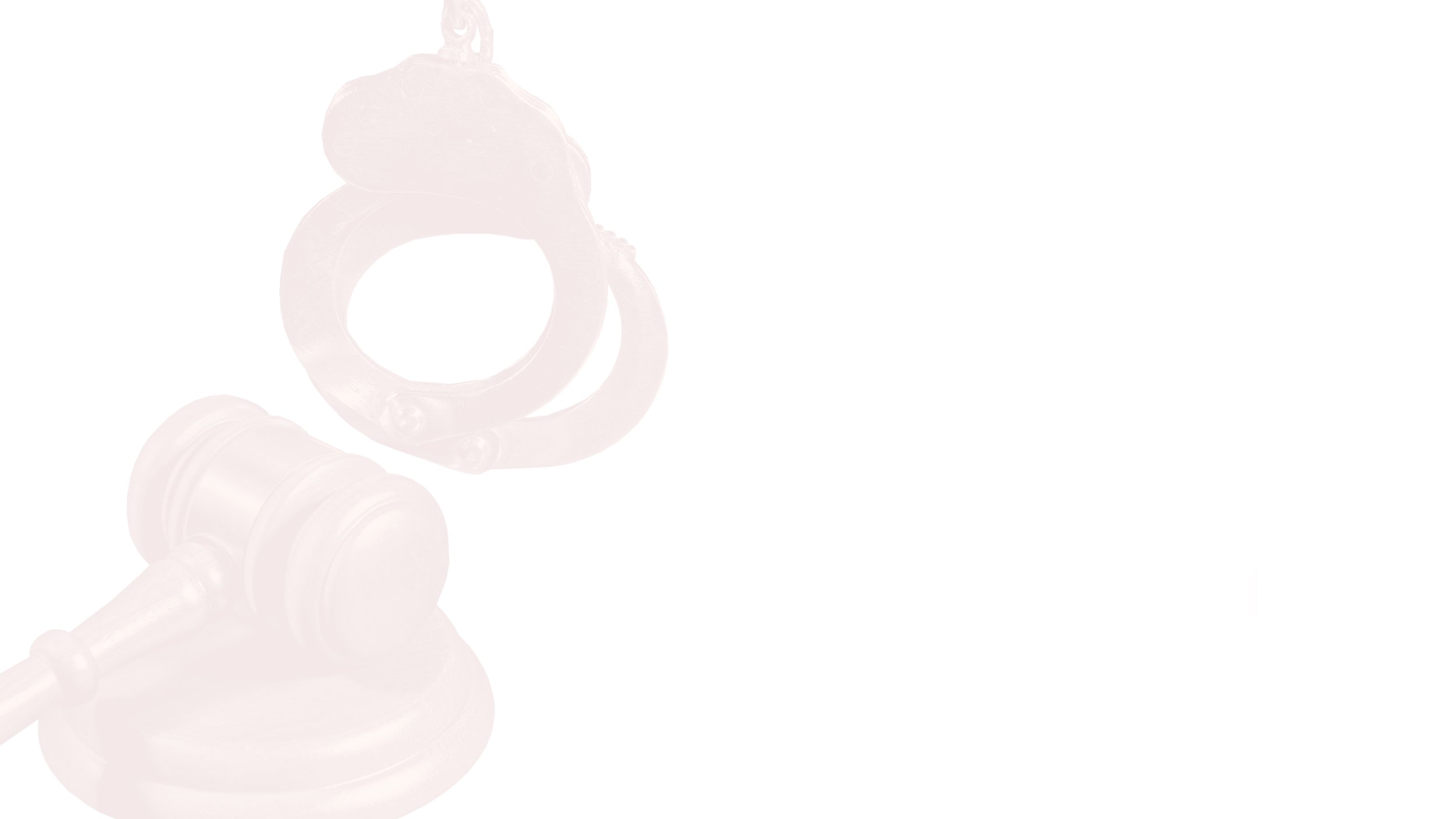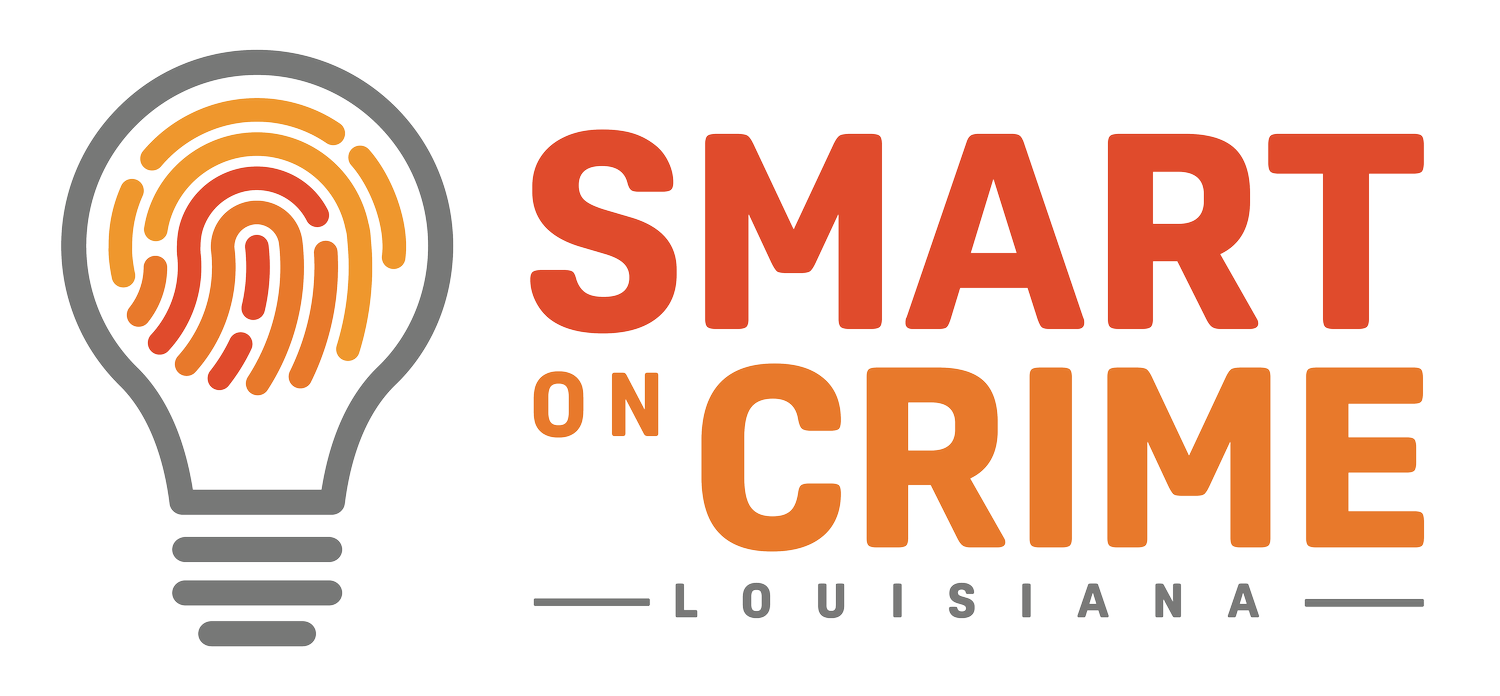LEGISLATIVE VICTORIES
2022
Occupational Licensure Reform Gets People to Work
Act 583 reforms Louisiana’s onerous occupational licensing regulations and requires boards to have a public health, safety, welfare, or fiduciary rationale for rules and regulations.
Act 486 will have significant impact on justice involved citizens by requiring boards to allow pre-qualification checks for justice involved citizens before pursuing an occupational license..
Freedom to Drive Removes Barriers for Justice-Involved Citizens
Act 436 will now require first and second written warnings before suspending someone’s driver’s license for failure to appear in court.
Act 701 removes the ability to suspend someone’s driver’s license for less than $2,000 owed in taxes.
Act 772 makes driver’s license suspension a last resort when someone fails to pay child support.
Fines and Fees Reform
Act 219, which was a result of the fines and fees commission, gives more flexibility when people are unable to pay fines and fees.
2021
Shortened the Time Prosecutors can File Misdmeanors
Act 252: Lowered the timeframe for prosecutors to file misdemeanor charges from 45 days to 30 days. This is a step in the right direction, but still allows individuals to be locked up for a month without actually being charged with a crime.
Reduced Fines for Juveniles
Act 123 & 125: Reduced criminal justice fines and fees for juveniles.
Eliminated Some Marijuana Incarceration
Act 247: Eliminating incarceration for small amounts of marijuana.

2020
Extended Eligibility for Expungements
Act 70: extended eligibility for expungements for justice involved individuals who receive alternatives to incarceration, such as recovery treatment programs.
Leveled the Field for Those with Barriers to Work
Act 71: Lowered the documentation required to prove employment for expungement. This leveled the field for people with disabilities and cannot work, retired people, and anyone who did work 10 years continuously but were denied because of unclear standards for acceptable paperwork.
Streamlined the Process to Achieve Reentry
Act 78: Streamlines the process for justice involving individuals to achieve reentry success sooner by eliminating secondary waiting periods and removing lifetime caps on expungements This bill also limited prohibition on expungements to individuals in the physical custody of the Department of Corrections.
Created the Clean Slate Study Group
House Resolution 67: Created the Clean Slate Study Group, tasked with studying automatic record-clearing for individuals who remain free from criminal activity for a certain period of time.
2019
Reduced Certain Expungement Fees
ACT 1: Reduced certain expungement fees by grouping together all convictions arising out of an arrest.
Limited Bail Bond Fees
ACT 54: Set limits on fees associated with bail bonds.
Allowed Participation in Work Release
ACT 369: Authorized those sentenced as Habitual Offenders to participate in work release up to one year prior to release granted by the Parole Board; allows the Parole Board to require special conditions for those releasing via goodtime; clarifies goodtime restrictions related to Reentry Court Programs.
Eliminated Some First Time Offenses from Sentence Enhancements
Act 386: The elimination of some first-time nonviolent offenses from being used in sentencing enhancements.
Promoted fiscal responsibility by studying incarceration and recidivism rates
ACT 253: Relative to Fines and Fees; relative to the court's authority to suspend a driver's license for failure to pay fines, to grant an extension of time to pay; to authorize community service instead of payment.
Provided a “cleansing period” for non-violent offenders
Specifies that an offense will not be counted as a second or subsequent offense if more than ten years have lapsed since expiration of maximum sentence for prior conviction. This applies only to non-violent and non-sex offenses, and will result in a greater number of non-violent offenders being eligible for parole consideration.
2018
Assessment Tools for Probation & Parole
Act 668: Provides assessment tools for Probation & Parole to utilize when an offender reoffends, and it provides “teeth” for judges to ensure those who need to return to prison can OR the judge can extend probation to five years. BUT for those doing what they need to do, it allows for shorter probation periods and successful re-entry.

2017
Louisiana spent more than $700 million annually on corrections. Our state imprisoned nearly double the national average and sent non-violent offenders to prison at three times the rate of neighboring states
This package, passed by the legislature and signed by the Governor, is estimated to lead to a reduction in prison population of 10% and savings of $262 million over the next decade. 70% of savings ($184 million) are earmarked for reinvestment in policies/programs proven to reduce recidivism and support crime victims. It will also lead to a reduction in community supervision of 12% making caseload sizes more manageable for probation and parole.
This legislation aims to focus prison beds on those who pose a serious threat to society, strengthen community supervision, clear away barriers to reentry, and reinvest a substantial portion of savings in rehabilitation programs.
2016
Offenders must be crime-free, and ten years of consistent employment is required. This approach makes it easier for people to rejoin the workforce and provide for their families. Law enforcement and criminal justice agencies retain access to this information.
This certificate will increase the likelihood that employers will consider hiring ex-offenders and bolster employment opportunities for those under supervision of a Re-entry Court.
This reasonable protection will incentivize and encourage mentors to volunteer and serve our communities by guiding and coaching probationers supervised by the Re-entry Courts.
Increasing the number of Re-entry Courts in Louisiana will increase the number of offenders that can receive the expanded services available through these specialty courts. This will help reduce recidivism rates and save taxpayer dollars.
This innovative program helps facilitate successful re-entry for inmates and merits careful study by the legislature.
This change increases the number of offenders that can benefit from access to the expanded services and intensive supervision of a specialty court, an approach that will lead to lower recidivism rates.
This innovative program will implement and monitor a system where offenders are subject to intensive supervision and frequent drug testing, and minor violations are quickly and proportionately handled using penalties and short jail stays. In other jurisdictions this approach has led to a reduction in revocations and new crimes by probationers.
Government employers can still conduct background checks and can use a criminal record as a reason to disqualify an applicant, but applicants will now have the opportunity to explain the record and provide any relevant context that should be considered.

2015
Established the Justice Reinvestment Task Force
The formation of a Task Force that includes key stakeholders in the criminal justice system will facilitate a broad set of reforms similar to those in states that have reduced incarceration rates without compromising public safety. The Task Force will collect data, work with stakeholders to identify opportunities for improvement, and help put together a comprehensive reform package. This approach has led to successful reform campaigns in Mississippi, Georgia, South Dakota, and other states.
Expanded the innovative approach to revocation caps
In 2007, the legislature implemented a 90-day incarceration limit for those whose probation or parole had been revoked for the first time after violating rules of their community supervision. The aim of this reform was to steer lower-level offenders to less expensive and more effective alternatives. A recent Pew study demonstrated that this policy has maintained public safety while saving taxpayers nearly $18 million in annual corrections costs.
To build upon this success, lawmakers placed caps on subsequent revocations. This will offer Louisiana even greater cost savings and highlight the value of using alternatives to incarceration for nonviolent offenders.
Reduced penalties for minor marijuana offenses
Louisiana will save taxpayer money and reduce incarceration rates by providing appropriate sentences for individuals convicted of possessing small amounts of marijuana. Reducing penalties for simple possession, while still providing enhanced penalties for repeat offenders, will save the state money by eliminating disproportionate sentences for possessing small amounts of marijuana.
2014
Created provisional occupational licenses
These licenses allow certain ex-offenders to obtain a provisional, or probationary, occupational license if they are otherwise qualified. This makes it easier for qualified ex-offenders to rejoin the workforce and become productive citizens.
Provided civil liability protection for employers
This law protects employers who hire ex-offenders without a violent or sex offense from being sued on that basis alone. This increases the likelihood that employers will consider hiring qualified ex-offenders.
Piloted a re-entry program in Pointe Coupee Parish
This innovative pilot program in Pointe Coupee Parish rehabilitates and supports offenders. The “Offender Re-entry Support Pilot Program” is maintained by the Parish Sheriff and provides offenders with assistance to facilitate re-entry into society following incarceration.
Authorized a Veteran’s Courts program
Created specialized Veteran’s Treatment Court Programs throughout Louisiana to assist veterans overcoming drug and substance abuse issues and any mental health issues contributing to involvement with the criminal justice system. The court programs operate like drug court programs throughout the state but will function in a manner specifically tailored for veterans. These specialized courts can tap into available federal resources and will help veterans access federal veteran programs and services offered for reintegration and rehabilitation.
Promoted fiscal responsibility by studying incarceration and recidivism rates
This study resolution directed the Department of Public Safety and Corrections to conduct a comprehensive statewide review of factors affecting Louisiana’s incarceration and recidivism rates. This review also includes an evaluation of the availability and efficacy of alternatives to incarceration and the utilization of such alternatives.
Provided a “cleansing period” for non-violent offenders
Specifies that an offense will not be counted as a second or subsequent offense if more than ten years have lapsed since expiration of maximum sentence for prior conviction. This applies only to non-violent and non-sex offenses, and will result in a greater number of non-violent offenders being eligible for parole consideration.
Expanded eligibility for medical parole
This reform enables the Department of Corrections to more efficiently and preemptively utilize the Medical Parole Procedure, further tap into existing cost-effective treatment alternatives to offset the medical cost of these infirm inmates, and curb DOC’s increasing need to dedicate additional wings at Correctional institutes specifically to infirm inmates.
